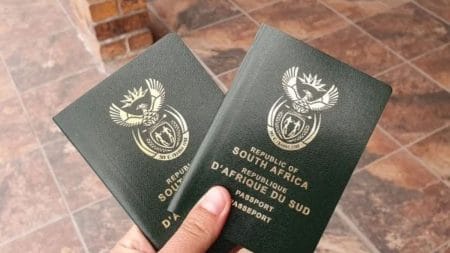In South Africa, access to government services, particularly for rural communities, has long been a challenge. The Department of Home Affairs (DHA) has taken significant strides in addressing this issue by expanding its fleet of mobile units. These mobile units are a game-changer for South Africans living in remote areas, offering essential civic services directly to the people who need them most.
Whether it’s applying for an ID card, registering a birth or death, or obtaining a passport, these units are making life easier for millions of South Africans.
What Are Home Affairs Mobile Units?
The DHA’s mobile units are essentially mobile offices that travel to rural and remote communities to provide essential documentation services. These services include the issuance of smart ID cards, birth certificates, marriage certificates, death certificates, and passports. The mobile units are equipped with modern technology such as biometric systems and satellite connectivity to ensure secure and efficient service delivery.
As of 2024, the DHA has a total of 227 mobile units operating across South Africa, a significant increase from previous years. This expansion is part of the government’s effort to improve accessibility and reduce the barriers that rural residents face when trying to access essential services.
Targeting Rural and Underserved Areas
One of the key features of the mobile units is their focus on rural areas, where access to Home Affairs services is often limited. In many parts of South Africa, residents must travel long distances—sometimes several hours—to reach the nearest Home Affairs office. For many, this travel is not only time-consuming but also expensive. The mobile units aim to alleviate these challenges by bringing services directly to the communities.
The units visit various provinces, including some of the most rural areas in Limpopo, the Eastern Cape, and KwaZulu-Natal. The DHA coordinates these visits with local stakeholders such as school principals, councillors, and traditional leaders, ensuring that the community is informed about when and where the mobile units will be available.
School-Based Campaigns: Empowering the Next Generation
One of the most impactful initiatives of the DHA’s mobile units is its collaboration with the Department of Basic Education. Over 1,625 schools nationwide have been visited by these mobile units, providing learners with an opportunity to apply for and receive their ID cards. This initiative is particularly important for young people, as an ID card is often the first step toward accessing other essential services such as applying for a driver’s license, opening a bank account, or voting.
In the 2024/2025 financial year alone, over 37,000 learners at these schools received their ID cards. This initiative has been especially impactful in rural areas where many students may not have the means to travel to a Home Affairs office. By offering this service directly at schools, the DHA is not only increasing access to important services but also empowering young people to participate more fully in society.
Reducing Barriers and Increasing Access
The mobile units are helping to bridge the gap between government services and the rural population. For many people living in remote areas, the cost and time involved in traveling to a fixed Home Affairs office can be a major deterrent to obtaining essential documentation. With the mobile units, residents can receive these services in their own communities, eliminating the need for long trips and reducing travel costs.
In addition, the units are equipped with the latest technology, which ensures that the services provided are secure and efficient. With biometric systems in place, identity verification is quick and accurate, and the use of satellite connectivity ensures that the units can operate even in areas with poor network infrastructure.
Achievements and Future Expansion
The impact of the mobile units is already evident. In just the first quarter of the 2024/2025 financial year, 44,619 adults and 37,214 learners received documentation through these units. In total, 81,833 people were able to apply for IDs and other essential documents in their own communities, significantly improving access to government services.
The DHA is committed to further expanding this service to ensure that even more people in underserved areas can benefit. There are plans to increase the number of mobile units and enhance their technological capabilities, making it even easier for people in rural areas to access services. These efforts align with the government’s broader goal of improving service delivery and promoting inclusivity in South Africa.
Check also: Home Affairs Queues: Best Times to Go and Beat the Lines
The Home Affairs mobile units are a shining example of how technology and innovative thinking can improve access to government services, particularly in rural areas. By bringing services directly to the communities that need them most, the DHA is helping to empower individuals, reduce barriers, and create a more inclusive society.
With ongoing expansion and continued commitment to improving service delivery, these mobile units are set to make a lasting impact on the lives of South Africans across the country.










